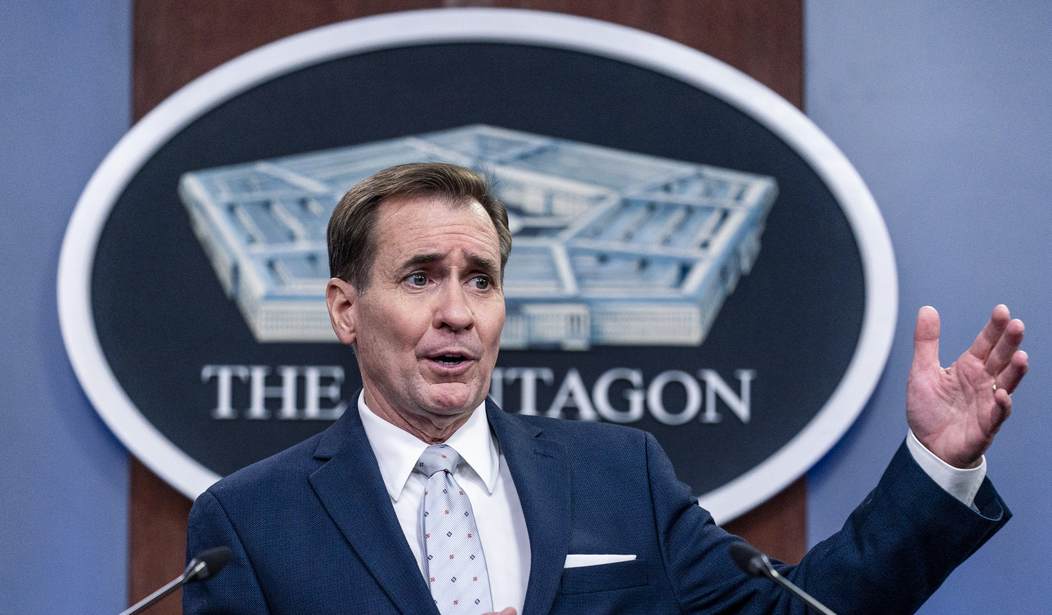The brutal invasion of Ukraine by Russia has renewed conservatives' calls for large increases of our defense budget. The extra money, we are told, would fund more weapons to better prepare us to respond to aggression in a world that looks increasingly dangerous. As compelling as these arguments can be in a stressful time, it's not quite so simple.
Providing military defense is a valid function of the federal government. However, that doesn't give license to Congress to simply pile on more spending, even when there are dangers out there. Nor does it mean that more spending will result in a completely safe world for us Americans. That's in part because that world doesn't exist. There's only so much safety money can buy.
While I certainly don't pretend to know what the optimal budget for our military is, we are already spending a large amount on national security and on the Pentagon. In fiscal year 2023, the United States is expected to spend more than $770 billion on national defense, with $729 billion of this amount being for the Department of Defense's military operations. This enormous sum is more than the next 10 countries spend combined. Russia, for instance, spends close to $62 billion. France and Germany spend almost $53 billion each. Assuming China's numbers are accurate, it spends $252 billion.
When considering how much more money we think is worth spending, we must keep in mind that not every additional dollar of military spending will result in enhanced national security. That's because government intentions do not equal results. Elected officials and bureaucrats have weak incentives to sensibly manage tax dollars. They are not rewarded for maximizing taxpayer value, nor are they usually punished for unnecessary risks. In addition, interest groups often drive political decisions that run counter to the best interest of the public.
Recommended
Military spending is not immune from these forces any more than the entitlement and welfare parts of the budget. Just look at the arms-industry lobbying machine, which in 2021 alone spent $117 million in lobbying expenditures and used 763 lobbyists, likely pushing for as much Pentagon spending as they can get. This explains why Congress continues to allocate funds to produce weapons that the Pentagon itself says it doesn't need. It also explains the endless saga of its cost overruns, as well as delays and malfunctions such as those of the F-35. The Defense Department has been allowed to fail its audits repeatedly, meaning no one really knows where some of that money goes. The result is a less-than-optimal allocation of our large defense budget.
These facts alone don't mean there are no grounds for the argument that the military is underfunded to do everything Congress demands of it. In 2017, the American Enterprise Institute's Mackenzie Eaglen argued for more military spending because "The United States now fields a military that could not meet even the requirements of a benign Clinton-era world," and that "(w)hile the United States continues to field the best military personnel in the world, policy makers have asked them to do too much with too little for too long."
I have no reason to doubt Eaglen's claim. However, unless the political system that produced these poor outcomes is reformed, one should remain skeptical about the effectiveness of even more spending.
What about the idea that we should annually spend 4% of our GDP on defense, as opposed to the 3% we are now spending? I find this argument lacking. As a measure of economic activity, GDP has very little to do with our ability to defend ourselves. There's no reason for 3%, 4%, or any other portion of GDP to be considered the right number.
If the defense-spending-to-GDP measurement reflects anything, it's affordability. That brings us to our enormous budget deficits and resulting growing debt. Unless Congress cuts non-defense spending significantly, growing the military budget would grow the deficit. However, if additional defense spending is deficit-financed, then we can expect slower growth, as Harvard economist Robert Barro and I demonstrated in a study back in 2013. That reduces, not increases, the affordability of our defense budget.
In other words, let's make sure we're asking the right questions before rushing to jack up the defense budget.

























Join the conversation as a VIP Member